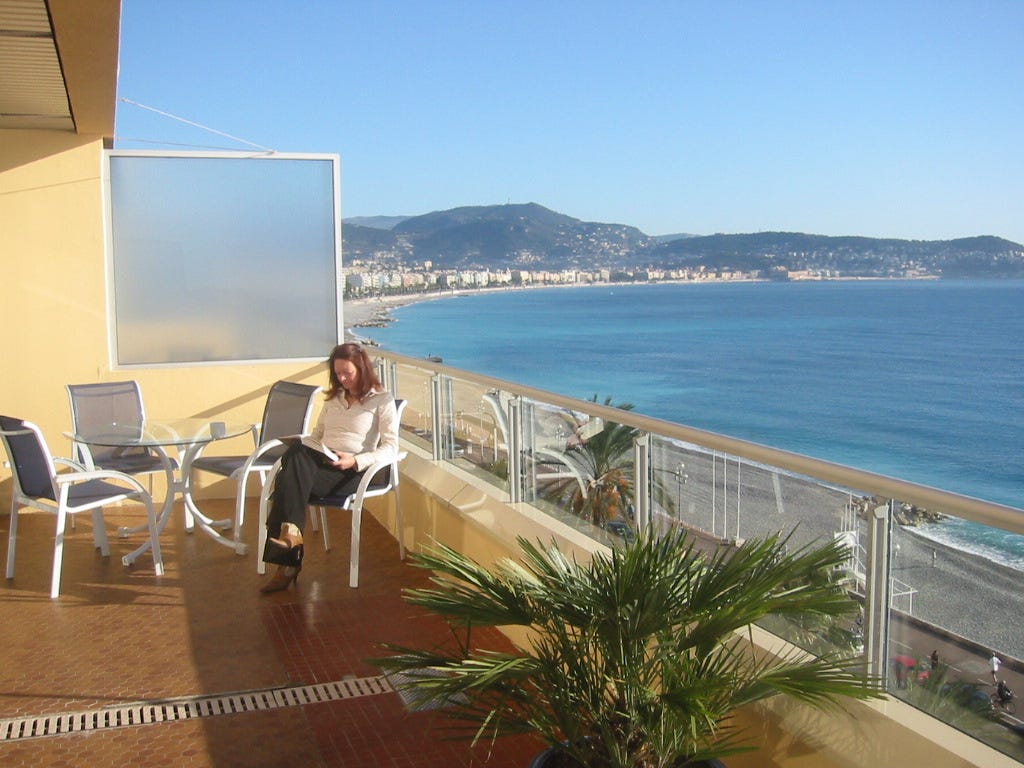Predicting the future without a crystal ball
But we did call our safety, security, crisis management program TRICS!
The first call I got was from the hotel General Manager.
“We evacuated our hotel due to a bomb threat.”
The second one was from the CEO.
“I’ll sleep better if you deploy to Nice until the EU Summit is over”.
Since 1991, our major event security plan had been continually reviewed and revised after every major event one of our hotels hosted or was in any way involved with.
As soon as an event was scheduled the plan was launched for the involved hotels.
Training, physical upgrades, liaison with authorities and delegation leads. We had pages and pages of spreadsheets where we could map preparation and follow progress.
Evacuation and bomb threat training were part of the program. So was having an agreement with a nearby facility that people could be swiftly and safely relocated to if necessary.
Planning and preparations in Nice had gone very well. I had conducted several training sessions myself, including bomb threat and evacuation drills.
I was confident in the hotel team’s capabilities, despite the fact that they had had to be evacuated - it turned out a policeman had failed to record the license plate number of a car that was parked long term in the underground parkade and there was some uncertainty in the police and fire brigade if the car should be deemed suspicious and a threat… a “better safe than sorry” approach was taken and the hotel evacuated with people going to the pre-determined safe location nearby as a precaution.
But of course, when the CEO says you go somewhere, you head to the airport without delay. So I flew to Nice.
As I approached the hotel, I could see the heavily armed police outside. People and belongings were screened upon entry. When I cleared security and walked toward the check-in desk a concierge approached me.
“How did you know we were going to have an evacuation? Thank you for telling us in advance! It went perfectly, we were so well prepared!”
I didn’t know that the hotel would have to be evacuated of course, but they had adopted the major event plan. Training and drills were key pillars of the plan.
There was continual review, from the planning and preparation stage right through to the post-event debriefing. The reviews asked questions in three areas:
Experience - what has happened at similar events State of the World - what issues could impact the event or our hotel Expected threat status - what level of threat is anticipated
In the late 90’s and early 2000’s, large, violent demonstrations were common when political summits were held. Our experience and the state of the world told us that there was an elevated risk of disruption including for example, bomb threats that could warrant an evacuation.
Perhaps the concierge thought I had a crystal ball. I didn’t, but…
As a company, we had the wherewithal to use the institutional knowledge we had acquired over the years to continually improve the planning and support provided to our hotel management teams.
For many of them, an EU Summit, a FIFA World Cup, or an Olympics would be a once in a lifetime event.
For us as a company, they were regular occurrences and each one represented an opportunity to increase our knowledge and increase the number of people that shared some of that knowledge.
It was an unintended coincidence, but not too long later, we adopted TRIC=S as the name of our safety, security, and risk management program at Radisson Hotel Group.
TRIC=S wasn’t an illusion or magic, it was a formula that could be adapted for use at any hotel anywhere.
T - Threat assessment R - Risk mitigation I - Incident response C - Crisis Management, Communications and Continuity = Safe, secure, and saleable hotels
Integrating safety, security, and crisis management into hotel operations improves more than a hotel’s risk profile. It improves employee well-being, too.
Employees know bad things can happen in hotels.
They need to know they can handle them.
Like the concierge said: “It went perfectly, we were so well-prepared.” He had been as comfortable and confident as he’d be if he was booking opera tickets for a guest. It was all part of his job.
And for hotel owners and managers, when you do experience a crisis, the communications people will want to include the line “the safety and security of our guests and associates is of paramount importance.”
Wouldn’t you like to be able to say, “Yes, put that in their and tell them about our ongoing program that shows we have integrated safety and security into everything that we do!”?
Hotel safety and security. It’s not rocket science. It’s hospitality!

P.S.: From the hotel’s perspective, the rest of the summit in Nice went off without a hitch. I didn’t even have to walk back to the airport, I was taken there in the back of a police car… stay tuned later this year for an upcoming Sunday series in our 87 Stories section called: “Things I learned in the back seat of police cars.”
Thanks for reading our newsletter!
We help hospitality businesses make jobs more meaningful and experiences more memorable by helping you make the most of the biggest differentiator you have – your people!
Let’s connect and discuss how we can help you.
Stay safe, Always Care



